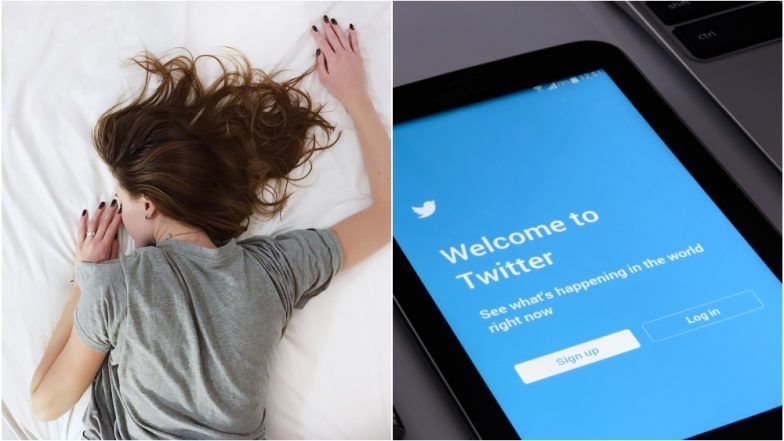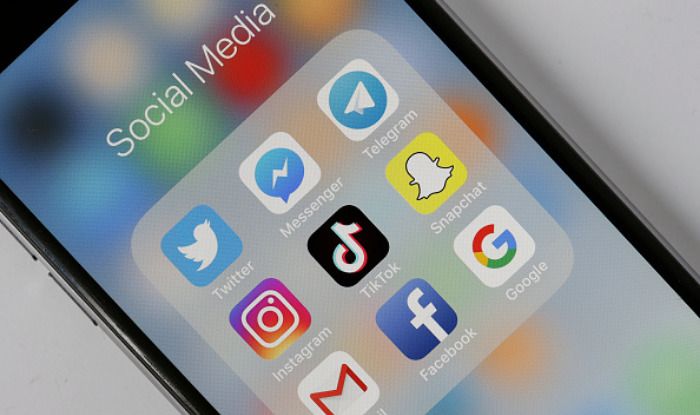Scientists Turn To Twitter To Track 'Social Jet Lag'
Indira Datta - Nov 19, 2018

"Social jet lag" is a laggard syndrome of human development, which makes the watch inside the biological clock unsuited to the daily schedule of the day.
- Jack Dorsey Is Selling The First Ever Tweet For The Highest Bidder, Current Bid Is $2.5 Million
- World's First Social Network For S.e.x Launched, Already A Huge Success
- Twitter's Swadeshi Version Tooter Went Viral Online
New research shows that Twitter contributes to the rise of the social jet lag, which disrupts the human circadian clock.

Twitter Contributes to 'Social Jet Lag'
"Social jet lag" is a laggard syndrome, in which human biological clock is not in line with the daily schedule. This greatly affects the health and longevity of people.
As discovered by researchers, low Twitter activity periods are correlated with our sleep. On the weekend, people use Twitter later at night compared with weekdays.
The difference in "Twitter social jet lag" depends on time, season and geographic location. It also corresponds to the average travel time and schedule, work shift, and diseases like obesity.
Coming from The University of Chicago, Michael Rust has said that they have been tracking the syndrome throughout a year, they saw that the most key factor is currently daily schedule.

Researchers have previously studied the syndrome through specialized screens conducting surveys to find out the difference between sleep and awake time on weekdays and weekends.
Unlike previous research, this new study collects data on Twitter in just 15 minutes, which covers about 1,500 US counties during the 2012-2013 period, according to a report by Current Biology article. There are 240,000 people tagged geographically through tweets.
Most counties had the highest Twitter social jet lag in February, while June and July were the lowest social jet lag months. This clearly shows that the social jet lag pattern is largely dependent on social factors such as job rotation schedules. The change of season and the length of day change have less direct effects.
Rust thinks that over time, people's circadian clocks are less affected by the solar cycle. Most people will spend most of their time looking at their phones.
Featured Stories

Features - Jan 29, 2026
Permanently Deleting Your Instagram Account: A Complete Step-by-Step Tutorial

Features - Jul 01, 2025
What Are The Fastest Passenger Vehicles Ever Created?

Features - Jun 25, 2025
Japan Hydrogen Breakthrough: Scientists Crack the Clean Energy Code with...

ICT News - Jun 25, 2025
AI Intimidation Tactics: CEOs Turn Flawed Technology Into Employee Fear Machine

Review - Jun 25, 2025
Windows 11 Problems: Is Microsoft's "Best" OS Actually Getting Worse?

Features - Jun 22, 2025
Telegram Founder Pavel Durov Plans to Split $14 Billion Fortune Among 106 Children

ICT News - Jun 22, 2025
Neuralink Telepathy Chip Enables Quadriplegic Rob Greiner to Control Games with...

Features - Jun 21, 2025
This Over $100 Bottle Has Nothing But Fresh Air Inside

Features - Jun 18, 2025
Best Mobile VPN Apps for Gaming 2025: Complete Guide

Features - Jun 18, 2025
A Math Formula Tells Us How Long Everything Will Live
Read more

Mobile- Feb 16, 2026
Xiaomi Launches Affordable Tracker to Compete with Apple's AirTag
For users tired of ecosystem lock-in or high prices, the Xiaomi Tag represents a compelling, no-frills option that delivers core functionality at a fraction of the cost.

Mobile- Feb 17, 2026
Anticipating the Samsung Galaxy S26 and S26+: Key Rumors and Specs
The Samsung Galaxy S26 series is on the horizon, sparking excitement among tech enthusiasts.

ICT News- Feb 18, 2026
Google's Project Toscana: Elevating Pixel Face Unlock to Rival Apple's Face ID
As the smartphone landscape evolves, Google's push toward superior face unlock technology underscores its ambition to close the gap with Apple in user security and convenience.
Comments
Sort by Newest | Popular